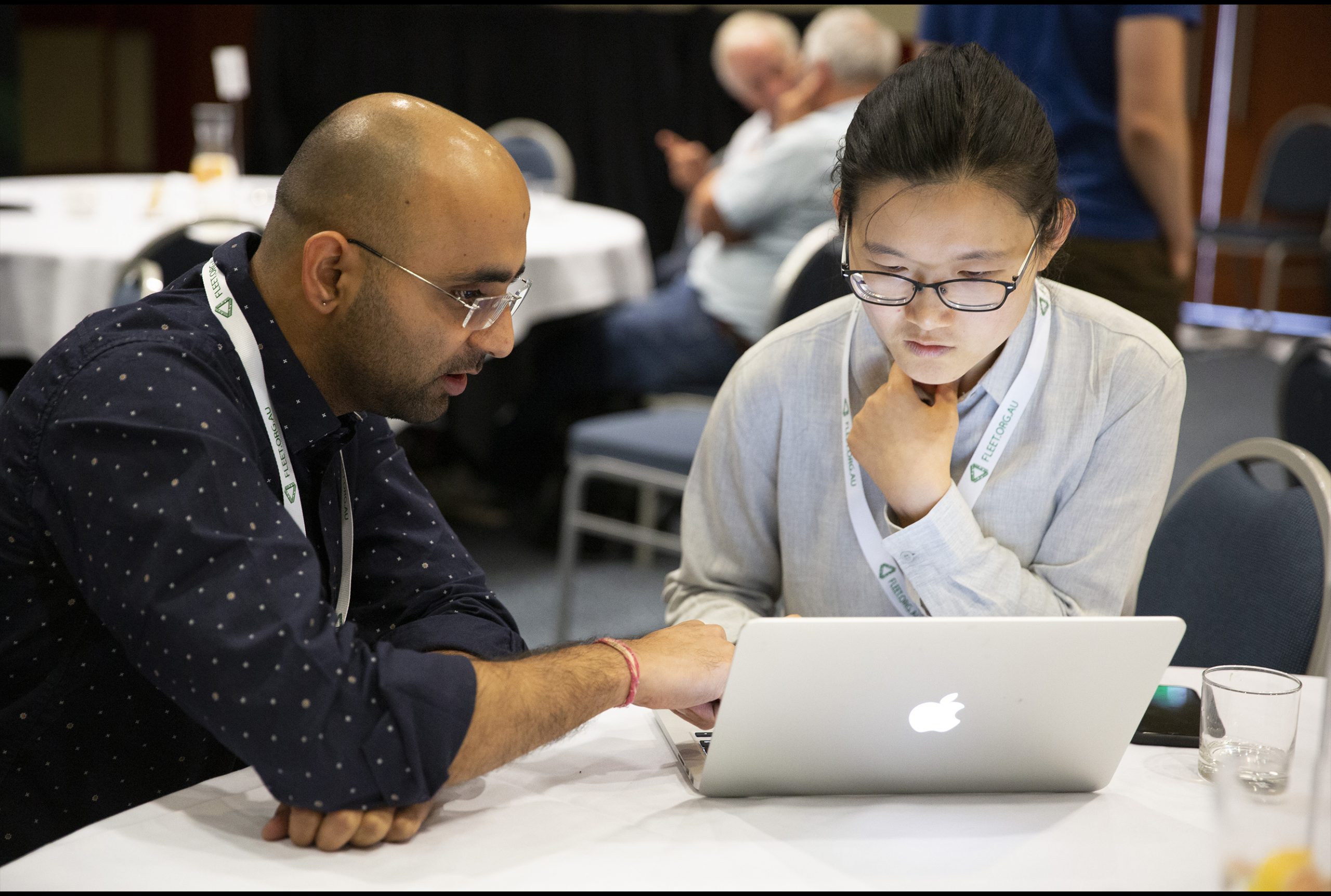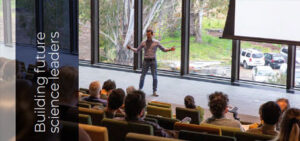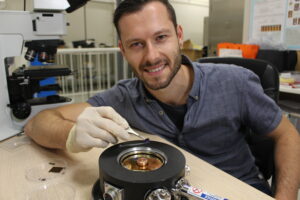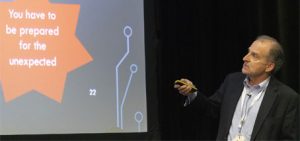Engage
Mentoring
FLEET provides mentoring to personnel across all cohorts (HDR, ECR, mid-career) with regard to induction, career advancement and planning, equity and diversity, professional development, entrepreneurship, and research leadership skills.
Two mentoring models are provided: (1) individual, goal-oriented mentoring, where members are individually matched to a mentor within FLEET (examples of goals include applications for promotion, grantsmanship, career advice); (2) group mentoring at FLEET annual Workshops on topics such as manuscript preparation for high-impact journals, scientific presentation, and research leadership.
Launched in November 2017, FLEET members can access a number of mentoring programs, including:
FLEET mentoring programs
Applications are always open for participation in FLEET Mentoring Programs as a mentor and/or mentee, simply fill in the form below and you’ll be matched with an appropriate mentor/mentee. For further info please contact education@fleet.org.au.
You have just started out your research career and wondering where your PhD might take you. Do you need to know what other options are out there for your future? Should you change areas for a postdoc? Or are you best to look for options outside of academia? While you will get a lot of help and guidance from your supervisor, they likely have a vested interest – they want their research done!
Or perhaps you’ve gotten your PhD, and are now on to your first postdoc position. What do you need to do to make the next step? To be competitive for a permanent job in research? Should you take that 12-month contract? Do you need to move to another institution? How many papers do you need to apply for an ARC DECRA, or maybe an Assistant Professor position?
There is a lot of benefit in being able to discuss your situation and experiences with someone who has been through it all recently. We suggest you might like to ask someone at the next academic career state (eg postdoc or junior academic from another institution) to be your mentor to offer some independent advice.
Perhaps academia isn’t for you – no real-world impact, and it all moves too slowly. Or maybe you just don’t get paid enough! It might be an opportune time to consider future options in the industry. What do you need to do to convince an employer that you have the skills they need in the industry? What up-skilling or training can you do while continuing your research that will convince potential future employers that you can get things done for them?
FLEET has alumni from its research groups that have already transitioned into volunteering to act as mentors for its current personnel. Get in touch and we can set you up with the right person.
You’ve made the step up and now have a longer-term position. How can you make sure you keep it? How much time should you invest in your teaching? Should you apply for the next grant by yourself? Or join up with some senior academics where they will get all the credit? Should you try to submit that latest result to Nature? Should you duck that committee position, or will it help you get promoted? Team up with a FLEET senior academic and have some thoughtful conversations about how to make your way through the minefield.
Perhaps you have established yourself. You’ve got the h-index. But have you got enough cash to keep your lab running? How can you keep your career moving forward? Should you chair that major committee? Do you need some input on that interdisciplinary grant application? Is it time for you to change your institution and leverage your success? The FLEET education and training committee will endeavour to help you find a suitable leader from inside or outside FLEET who will help you carefully consider these tough questions.
The data shows that Australia is nowhere near gender equity in science – women face additional challenges in pursuing a career in research. In the biological sciences, the majority of undergraduates are women – but progress towards equality at more senior levels has been extremely slow. The Women in FLEET mentoring program aims to pair you with a mentor who has already faced these particular challenges and has personal insight into ways to overcome them. As women are underrepresented in FLEET, our female mentors for this program also come from the wider women in the STEM network.
Cross-CoE Mentoring
Want to expand your mentoring network outside your usual scientific community? Through the Cross-CoE mentoring program, you can access a range of expertise and experiences from mentors across 12 Centres of Excellence across HASS and STEM fields.
Mentoring News
A new expanded mentoring network vastly increases the experience pool available for ECRs and others in 12 participating ARC Centres providing: structured mentoring with ongoing support and oversight access to a range of resources and peer-mentoring groups large, diverse pool of mentors and mentees for both researchers and professional staff. Allowing members of the participating Centres to access mentors in …
FLEET is developing future Australian science leaders and preparing them for future success FLEET is working to develop Australia’s next generation of science leaders. All FLEET’s students and young researchers receive excellent supervision, are offered world-class training and other opportunities for professional development, and are supported in navigating diverse future career pathways. The Centre currently supports 63 higher degree by …
FLEET’s research fellow Matthias Wurdack has been chosen to represent Australia at the annual Lindau Nobel Laureate Meeting this year. Matthias will be among six early-career Australian scientists attending the 71th Meeting of Nobel Laureates in Lindau, Germany, 26 June – 1 July 2022. The 71th Lindau Nobel Laureate Meeting will be dedicated to chemistry, expected to be attended by around …
Working towards the overarching goal of creating pathways to translations of research outcomes, FLEET is building links with partners interested in novel electronic devices and systems. Progress towards this important goal in 2019 includes: Working to include topological transistors in the Institute of Electrical and Electronics Engineers’ (IEEE) International Roadmap for Devices and Systems Lodging two provisional patents Collaborating on …
FLEET ensures that our young researchers are prepared for future success – wherever their career takes them. The Centre currently supports 51 higher degree by research (HDR) students and 43 postdoctoral researchers with another 29 research affiliates working on FLEET projects and invited to Centre training, workshops and events. FLEET connects its researchers with internal and international networks; for example, …
Engaging with politicians and other policymakers is key for any Centre of Excellence, and pitching to politicians is a key skill for researchers, whether they are senior or just starting their career in research. In 2019, three FLEET ECRs were fortunate to attend Science Meets Parliament. Each proved to be remarkably adept at briefing members of the House of Representatives …







